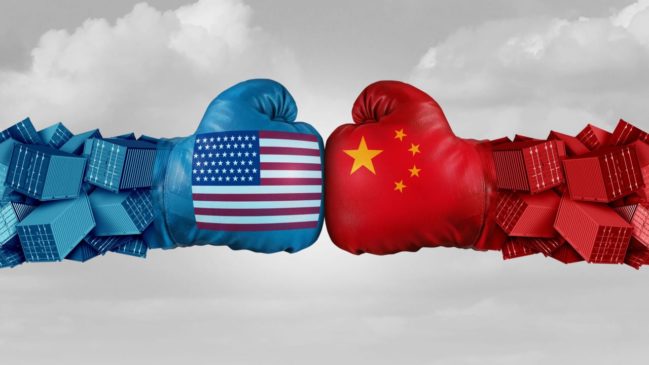The government of China protested the enactment of sanctions on a series of national companies by the U.S., barring them from doing business with U.S.-based entities for allegedly collaborating with Russia. China’s Commerce Ministry criticized the move, saying it is a “typical form of long-arm jurisdiction,” which damages the rights and interests of these companies.
China Opposes the Enactment of Sanctions on National Companies
The government of China has expressed its disagreement with the recent enactment of a series of sanctions against a number of national companies for supposedly collaborating with Russia. The companies, which are mostly in the electronics business, were allegedly used as bridges, purchasing U.S. technology in order to deliver it to Russia, sidestepping the sanctions established by the Office of Foreign Assets Control (OFAC) on Russian entities.
A statement from China’s Commerce Ministry accused the U.S. of overreaching with this move. The statement rejected these measures, stating:
It is a typical unilateral sanction and a form of ‘long-arm jurisdiction’ which seriously damages the legitimate rights and interests of enterprises and affects the security and stability of the global supply chain.
Furthermore, China made a call to “correct this wrongdoing,” saying it will safeguard the rights and interests of Chinese companies.
This is not the first time that Chinese companies have been hit by sanctions for allegedly cooperating with other countries to evade pre-existing sanctions. In March, a group of Chinese companies was designated for collaborating with Iranian companies aiding the Russian war effort.
Also, another group of Chinese companies was sanctioned for integrating a shadow banking system for Iranian firms.
China, U.S., and Sanctions
The enactment of these sanctions has some experts worried about the effects this might have on the bilateral relationship between the U.S. and China, already affected by the developments on the issue of Taiwan. For Hank Paulson, former Treasury secretary of the U.S., “The US-China relationship is on the brink,” and the recent policies of the government are not working to appease the situation.
In a recent interview in Financial Times, Paulson talked about the results of these policies, declaring:
If America goes too far in curtailing trade and investment with China and we go far beyond what our allies and partners want to do, the result will be to isolate the US.
Recently, President Joe Biden also extended a series of sanctions against the military and industrial companies in Russia.
What do you think about the latest sanctions enacted against Chinese companies? Tell us in the comments section below.
Image Credits: Shutterstock, Pixabay, Wiki Commons
Disclaimer: This article is for informational purposes only. It is not a direct offer or solicitation of an offer to buy or sell, or a recommendation or endorsement of any products, services, or companies. Bitcoin.com does not provide investment, tax, legal, or accounting advice. Neither the company nor the author is responsible, directly or indirectly, for any damage or loss caused or alleged to be caused by or in connection with the use of or reliance on any content, goods or services mentioned in this article.



